 If Amanda Gorman is not the most famous poet in the United States right now, she is at least the most widely celebrated. The signs of this are virtually everywhere you look. Having been the first-ever National Youth Poet Laureate, a distinction she won in 2017 when she was only 19 years old, she was already well-known before her rousing performance at the inauguration of Joe Biden and Kamala Harris in January.
If Amanda Gorman is not the most famous poet in the United States right now, she is at least the most widely celebrated. The signs of this are virtually everywhere you look. Having been the first-ever National Youth Poet Laureate, a distinction she won in 2017 when she was only 19 years old, she was already well-known before her rousing performance at the inauguration of Joe Biden and Kamala Harris in January.
The youngest person to ever recite a poem at a U.S. president’s inauguration, the 22-, now 23-year-old poet followed up her history-making January with a stratospherically impressive February, performing virtually at the Super Bowl and appearing on the cover of Time magazine. As if this isn’t enough to prove her superstardom, two books of hers, The Hill We Climb, which contains the one poem she recited at the inauguration, and The Hill We Climb and Other Poems, became the #1 and #2 best selling titles on Amazon following the inauguration, when neither of them had even been released yet.
There is no debating whether Gorman’s collection of achievements is deserved. A summa cum laude graduate of Harvard University, she published her first collection of poetry, The One for Whom Food Is Not Enough before she turned 18. The rare combination of her youth, work ethic, and talent evokes the thought of perennial poetic prodigies like Lord Byron, Percy Bysshe Shelley, and Arthur Rimbaud. She even exceeds them in some ways. Her career has already outlasted Rimbaud’s, who stopped publishing at 20, and the 19-year-old Byron was routinely blasted by critics. Gorman, on the other hand, has captured the collective heart of an entire country.
Despite her many, many accolades, the thing that did the best job of indicating how high her ever-rising star was to me was how long it took me to find a single negative review of her work. I’m sure it took me more than half an hour of scrolling through nonstop adulation to find even the slightest shred of skepticism about her. I was searching for negative reviews for two reasons. One, I cannot think of a single writer working today that has never been reviewed poorly, so when I discovered just how universal her acclaim is, I became intrigued, and resolved to find at least one contrarian’s opinion. Two, though I deeply respect and admire Gorman, as I respect and admire nearly all young, Black, successful artists, I am somewhat concerned by the speed and fervor with which the country has chosen to sing her praises. What I wonder about her is what I wonder about the President and Vice President: could all of this—the talk of freedom, change, hills to climb—could it all be for show?
At the end of my arduous search for a critic, I finally came across someone like-minded. The needle in the congratulatory haystack was Adam Lehrer, who wrote a deeply interesting piece about Gorman on his website Safety Propaganda. Lehrer, who derides Biden and Harris as “agents of the carceral state” given their strict criminal justice records, questions whether Gorman’s poetry is radical and provocative, as her supporters have said, or if it is more akin to propaganda in support of a presidency that has not yet proven its progressiveness.
The inaugural poem itself, “The Hill We Climb,” is anything but radical. Its language doesn’t dare to indict anyone or anything but instead shares the same feeble optimism that has long been characteristic of Americans that would prefer to believe the country is making satisfactory progress toward equality than to acknowledge the grim reality of how consistent its mistakes are. To quote the poem, it’s attractive enough to see America as “a nation that isn’t broken, but simply unfinished,” but it’s difficult to see this hypothetical finish line when children younger than Emmett Till are being gunned down by paid public servants 66 years after Till’s murder. I don’t mean to say that I don’t believe the nation will ever see true, complete equality on the horizon. That is a claim too complex for anyone to make. But I don’t believe that the way to get there is by appealing to fragile American sensibilities via feelgood poetry and meaningless guarantees of having won back the “soul of the nation.”
In Lehrer’s words, Gorman’s poetry is the poetry of “liberal reformism,” “abject conformism,” “hollow moralism,” and “of a reductive and poor understanding of the world we live in.” His essay expresses through these and other similarly sharp barbs that he finds very little protein in Gorman’s work, that she and her supporters would rather appear to be interested in enacting positive change than in getting their hands dirty and addressing the dark and still-darkening roots of American inequality. But Gorman and her career are very young. Her work has already shown glimpses of the grit Lehrer was so desperately searching for—in “We the People,” 19-year-old Gorman posits that our “less-than-perfect union” “accuses the vulnerable and never the top class and race,” a line which by itself is more radical than any of those in “The Hill We Climb,” yet is still very tame and very trite.
In “In This Place (An American Lyric),” Gorman states that “tyrants fear the poet.” Realistically, I don’t know that any tyrant worth their salt would fear Gorman in her current iteration. The often radical and unforgiving verse of Claude McKay and Langston Hughes, perhaps, but not her. In the remainder of what I’m sure will be a long and illustrious career, I look forward to discovering whether Gorman’s poetry will ever possess the progressivism that her high-profile supporters from Oprah Winfrey to Michelle Obama swear that it already has. Nay, that America swears it already has. After contrasting the perception of Gorman’s work as radical with the reality of its unobtrusiveness, to quote Lehrer again: “Does the culture that has made Gorman a star feel like one that prioritizes freedom?”
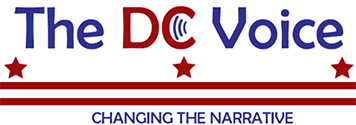










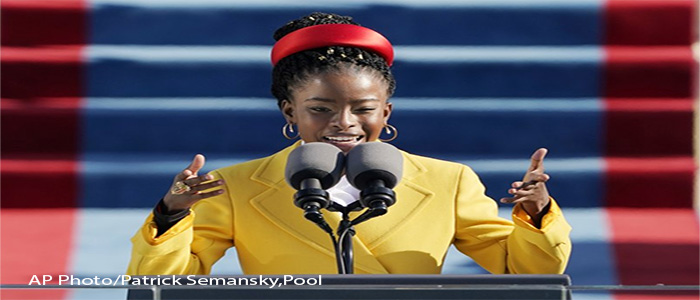


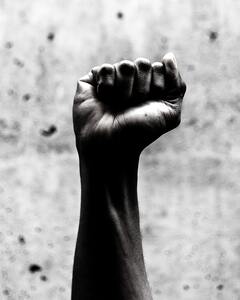

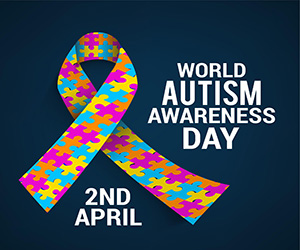
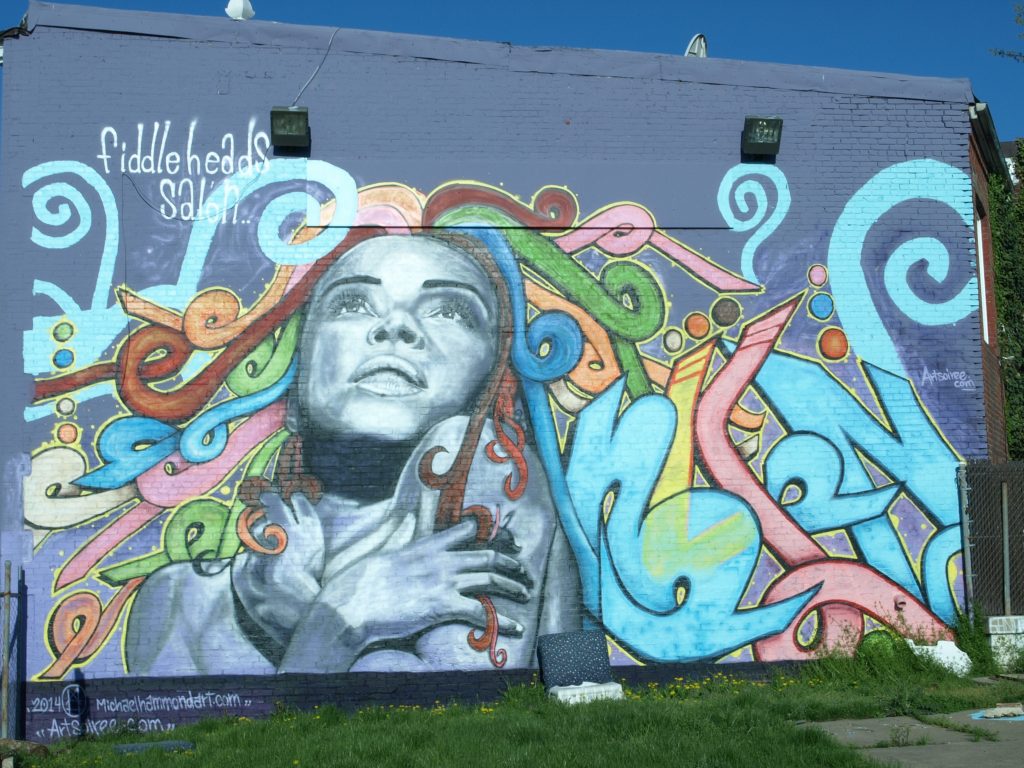
Add comment